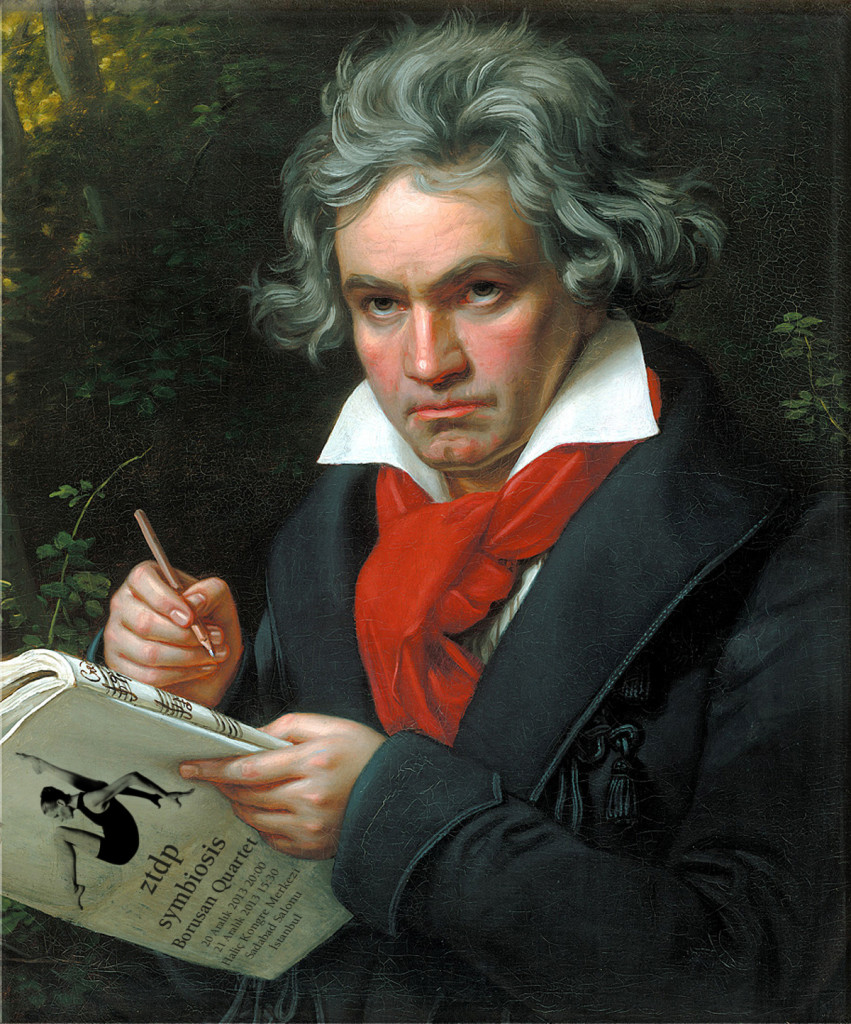
2013 was a blessed year for classical music lovers and it looks like the bounty will continue on to the year 2014. Let’s take a look at some of the most recent events and those forthcoming in the new year:
Among the highlights of 2013 was the Beethoven Festival, organized by the fine Borusan Istanbul Philharmonic Orchestra, more popularly (and simply) known as the BIPO Orchestra. The program consisted of three evenings dedicated to the classical music hero, featuring a spectrum of his music, from violin and piano concertos to symphonies and his “solemn mass.”
Guest solo appearances came from international virtuosi: Christian Tetzlaff on the violin on the first evening, 18 December, as BIPO performed the Violin Concerto in D Major, Op. 62, and Symphony No. 3 in E-flat Major, Op. 55, popularly referred to as “Eroica.” Thursday, 19 December, was indeed a day for festive feelings, as the world renown pianist Alexei Volodin joined the BIPO Orchestra in the marvelous Piano Concerto No. 5 in E-flat Major, Op. 73. During the second interval, the audience was treated to Symphony No. 5 in C minor, perhaps the most popular masterpiece of Beethoven, after his 9th Symphony.
The most unique evening of the Festival was that of the closing performance, with BIPO hosting the grandiose Salzburg Bach Choir of Vienna, Austria, in a performance of Beethoven’s Missa Solemnis. A piece familiar perhaps only to the classical-savvy, Beethoven’s Missa Solemnis, which translates into “Solemn Mass,” is not a concerto or symphony, like one would generically expect as the closing masterpiece of a festival. Instead, the title Missa Solemnis refers to a genre of sacred music that is “festively scored” and that makes extensive use of Latin for religious description and appraisals. Other greats of classical music, such as Mozart, Rossini, Liszt, and Weber, have also undertaken the composition of one. However, the Missa Solemnis is generally understood to mean the work of Beethoven, while the works of the other composers are referred to by slight variations (such as Mozart’s Missa Solemnis in C major or Rossini’s Petite messe solennelle).
A Missa Solemnis is a composition used for grand events and ceremonies, such as the coronation of a king or the naming of a new cardinal or archbishop. In fact, Beethoven was given the task of composing his Missa Solemnis for the granting of title ceremony of Archiduke Rudolph when he was named cardinal and archbishop of the city of Olmutz, a city that falls now in the borders of the Czech Republic. The timing of this coincided with Beethoven’s composition of the 9th Symphony, and I am sure that many in the audience experienced at least a moment or two where they felt the spirit of the 9th Symphony coming through in this piece.
Besides the specificity of its nature, the difficulty of Beethoven’s Missa Solemnis and its grandiosity make it a rarity to witness a live performance; the piece requires a major choir, and a well established, grand orchestra with not only strings, but also the full set of winds and percussion. Add to that the precision and mastery necessary to undertake a masterpiece of this sort, which it should be noted took Beethoven five years to compose, and one understands why it is so seldom performed – it is only attempted by the very best orchestras. Indeed, it was the first time ever that Missa Solemnis was performed in Istanbul, and in Turkey.
Contrary to my initial expectation that the Salzburg Bach Choir would be composed of solemn-bordering-on-grave-looking singers resembling 19th century priests and nuns in song (due both the religious nature of the piece, and the term “Solemnis” ominously hanging over the title), the Choir was filled with young people who embodied a vibrant spirit. Ruth Ziesak, Daniela Lehner, Richard Croft, and David Soar took on the parts of solo soprano, mezzasoprano, tenor, and bass, respectively, and with some sixty-plus singers in the choir, and a full orchestra, the packed auditorium of 1700-seat capacity was easily filled with the evening’s magnificent sound.
While it’s true that the performance did feel more like mass – albeit a very impressive, grand, and glorious one – than a festival, there was no room for complaint. For just as the great masters of painting turned the religious duties assigned to them, such as biblical illustrations, into timeless, fascinating, and transcendent art – just think of Michelangelo and his work on the ceiling of the Sistine Chapel – so too did Beethoven turn a task of ancient ceremony into a beautiful, celestial masterpiece of space and sonority, serenity and glory.
And, for those who were celebrating Christmas, it felt very much in the spirit of the season. For everyone else, it sealed off the passing year with a magnificent resonance, and welcomed the new year in glorious ceremony.
While Missa Solemnis marked the official end of the Beethoven Festival, BIPO continues its focus on Beethoven in 2014 in well. Keep your attention focused on 15-23 March, when internationally heralded pianist Rudolph Buchbinder takes the stage at the Süreyya Opera House. The stated goal: to perform every single piano sonata Beethoven has ever composed in a series of seven concerts across nine evenings. With performances like that on the schedule, it’s safe to say that BIPO and the Beethoven Festival will continue to provide delightful music for our listening pleasure during 2014.
Melis Kanık is a contributor to Yabangee











[…] though the Borusan Istanbul Philharmonic Orchestra bid goodbye to 2103 in solemn style with its performance of Beethoven’s magnificent yet weighty masterpiece Missa Solemnis, then it sure welcomed the […]
[…] to catch the Salzburg Bach Choir once before, and again as the guest star of the BIPO, when they took the stage to perform Beethoven’s Missa Solemnis as part of BIPO’s Beethoven Festival. Ever since BIPO […]